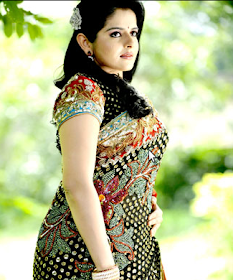The release of Kadam Bacha Kotte in 1961 opened a new era of Malayalam cinema. It was the maiden venture of modern theatres and first Malayalam talkie in Eastman color.
Kandam Bacha Kottu was based on a popular novel focused mainly on the evil of dowry system which was rampant in the Muslim Community and also stages as a play under the same title.
This film was the first Malayalam directorial venture of the famous director. T.R. Sundaram. It will also be remembered as the debut film of Nellikodu Bhaskaran, actor and script writer K.T. Mohammed.
The film ran for weeks in packed theatres. The film had nine songs by P.Bhaskaran and M.S Baburaj. Some of the songs were hits of the time but could not stand the test of time.
More details of the film Kandam Becha Kot.
Modern Theatres, producers of the first talkie film in Malayalam, also brought colour with the Muslim social drama ‘Kandam Bacha Coattu.’ Based on a popular novel, which was also staged as a play under the same title, the screen version in Eastman colour was a success.
The film focussed mainly on the evil of dowry system which was rampant in the Muslim community. A trailer of the film was introduced for the first time in Malayalam cinema.
This film was the first Malayalam directorial venture of the famous director T. R. Sundaram. Nellikkodu Bhaskaran, noted for his character roles, made his debut in this film. It introduced the Kozhikodan slang throughout the film. The dialogues by K.T. Mohammed were impressive. He assailed the many undesirable practices in the community with a punch. All the artists, especially Nilambur Ayisha, spoke the local slang in a very natural style.
The story of the film revolves around a kind hearted cobbler Mohammed Kakka (T. S. Muthiah). He keeps his life savings into the pockets of his old coat to realise his dream of going on a pilgrimage to Mecca. Alikoya Haji (Thikkurissi) loves his son Ummer (Prem Nawaz) and brings him up showering all love and affection. Hajis’s sister Kadeeja (Pankajavalli) and her family lives in the neighbourhood. Amina (Aranmula Ponnamma) and her children, Kunju Bibi (Ambika ) and Hassan (Nellikkodu Bhaskaran) lives in the same house. Amina’s husband is a businessman in Singapore. Kadeeja’s husband Avaran (Kedamangalam Sadanandan) is very considerate to his brother’s wife Amina and her family. But Kadeeja keeps ill treating Amina.
Ummer falls in love with Kunju Bibi, his childhood mate. Kadeeja is jealous of this affair. She tries all sorts of tricks to create trouble but fails. Alikoya Haji decides to accept Kunju Bibi as his daughter-in-law, but demands a dowry of Rs. 2,000.
Amina’s husband starts from Singapore with the money. Arrangements for the wedding is made but to the dismay of everyone a telegram arrives informing the death of Amina’s husband during the voyage back home. Amina and her children are pushed out of the house, the marriage is postponed as Haji gives an ultimatum to organise the dowry.
Mohammed Kakka gives shelter to Amina and her family. Kadeeja continues to harass them, while Ummer tries hard to help them organise the money. He even goes to the extent of stealing from his father’s safe. Ummer is caught red handed and is placed under house arrest. Mohammed Kakka makes arrangements for the marriage. He offers the money he had saved and kept in the pockets of the coat. He also appeals to others in the neighbourhood to contribute for the marriage. Ummer finally marries Kunju Bibi providing a happy ending to the film. Mohmmed Kakka’s noble deed glorifies him.
The film ran for weeks in packed theatres. Thikkurissi excelled in his role of the Haji. Prem Nawaz, Aranmula Ponnamma, Ambika, and others came up with impressive performances. However, the main attraction was T. S. Muthiah’s Mohammed Kakka, considered to be his best performance in Malayalam. The film had nine songs by P. Bhaskaran and M. S. Baburaj. Some of the songs were hits of the time but could not stand the test of time. A comedy number ‘Zindabad, zindabad...’ by Mehboob, ‘Puthen manavatti...’ an Oppana song by P. Leela and chorus were popular. A drama, ‘Elayadethu Rani, was an added attraction.
Will be remembered: As the first colour film in Malayalam. It will also be remembered as the first directorial venture of T. R. Sundaram in Malayalam, as the debut film of Nellikodu Bhaskaran, actor and script writer K. T. Mohammed. As the first film to use the typical Kozhikode Muslim slang right through.















































